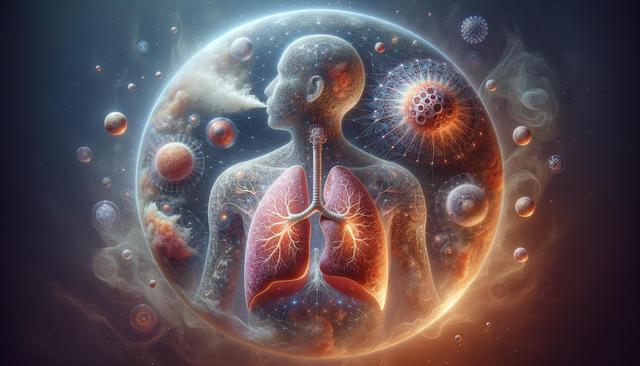Understanding Emphysema and Its Impact
Emphysema is a chronic lung condition that falls under the category of chronic obstructive pulmonary disease (COPD). It primarily damages the alveoli – the tiny air sacs in the lungs – reducing the surface area available for gas exchange. As a result, patients experience difficulty in breathing, chronic cough, and frequent respiratory infections. Traditionally, treatment options have focused on symptom management rather than reversal of damage. These include bronchodilators, corticosteroids, oxygen therapy, and pulmonary rehabilitation. Despite these approaches, many individuals still face progressive decline in lung function over time.
Living with emphysema can significantly impact daily activities. Simple tasks such as walking or climbing stairs may become exhausting. Additionally, the disease often leads to social isolation and emotional distress due to physical limitations. With a growing global burden of COPD-related conditions, the medical community has been striving to develop more effective interventions that target the root causes of lung damage rather than just managing its symptoms.
Innovative Approaches to Treatment
In recent years, several new treatments for emphysema have been introduced or are currently under investigation. These emerging therapies aim not only to alleviate symptoms but also to improve lung function by targeting the structural and inflammatory aspects of the disease. One such advancement is the use of bronchoscopic lung volume reduction (BLVR), a minimally invasive procedure that places small valves in the airways to block airflow to damaged parts of the lung. This allows healthier areas to expand and function more efficiently.
Another area gaining attention is regenerative medicine. Research into stem cell therapy is showing early promise in potentially regenerating lung tissue. While still in experimental stages, these techniques involve harvesting stem cells and delivering them to damaged lung regions to promote healing. Additionally, anti-inflammatory biologic drugs are being tested to reduce the chronic inflammation associated with emphysema progression. These novel approaches are being studied in clinical trials and may soon provide more personalized and effective treatment options.
The Role of Technology in Advancing Care
Technology is playing a transformative role in how emphysema is managed and treated. Telemedicine platforms now allow patients to connect with pulmonologists remotely, improving access to specialized care. Moreover, wearable devices are enabling continuous monitoring of respiratory parameters, which can help detect exacerbations early and guide treatment decisions. Digital spirometry tools are also being used at home to track lung function trends over time.
Additionally, artificial intelligence (AI) is being integrated into diagnostic tools to improve the accuracy of imaging analysis. This helps clinicians identify emphysema patterns and severity more precisely, leading to more tailored interventions. Online platforms and mobile apps designed for COPD self-management are also empowering patients to take an active role in their care. These tools often include features such as:
- Medication reminders
- Exercise tracking for pulmonary rehab
- Symptom logging and analysis
- Educational resources
By embracing technology, healthcare providers and patients are better equipped to manage emphysema more effectively and proactively.
Lifestyle Integration and Supportive Therapies
While medical treatments are essential, lifestyle changes remain a cornerstone of emphysema management. Smoking cessation is the most critical step for slowing disease progression. Many new treatment strategies are more effective when combined with supportive therapies such as physical activity, nutrition, and breathing exercises. Pulmonary rehabilitation programs, which include supervised exercise training and education, continue to play a vital role in improving patients’ quality of life.
Moreover, psychological support is increasingly recognized as a necessary component of comprehensive care. Chronic respiratory diseases like emphysema can lead to anxiety and depression, which can further impact physical health. Integrating mental health support, either through counseling or support groups, can enhance overall well-being. Patients are also encouraged to:
- Maintain a balanced diet to support lung health
- Stay up-to-date with vaccinations to prevent respiratory infections
- Practice energy-conservation techniques in daily activities
These lifestyle adjustments, when combined with new treatment modalities, form a holistic approach to managing the disease more effectively.
Looking Ahead: What Patients Should Know
As research continues to evolve, patients with emphysema have more reason to be hopeful. Ongoing clinical trials and medical innovations are broadening the horizon of available treatments. It is important for patients to stay informed about emerging options and discuss them with their healthcare providers. Participation in clinical research may also be an option for those interested in contributing to the advancement of care.
However, it is essential to recognize that not all new treatments are suitable for every patient. Personalized care plans, tailored to the individual’s disease severity, overall health, and lifestyle, yield the best outcomes. Patients should also be cautious of unverified claims or treatments that promise instant cures. Consulting with a pulmonologist or respiratory specialist is the best way to determine which therapies may be appropriate.
In summary, the future of emphysema treatment is moving toward more targeted, minimally invasive, and technologically enhanced interventions. With a combination of medical innovation and proactive self-care, patients can experience improved symptom control and potentially a better quality of life.


